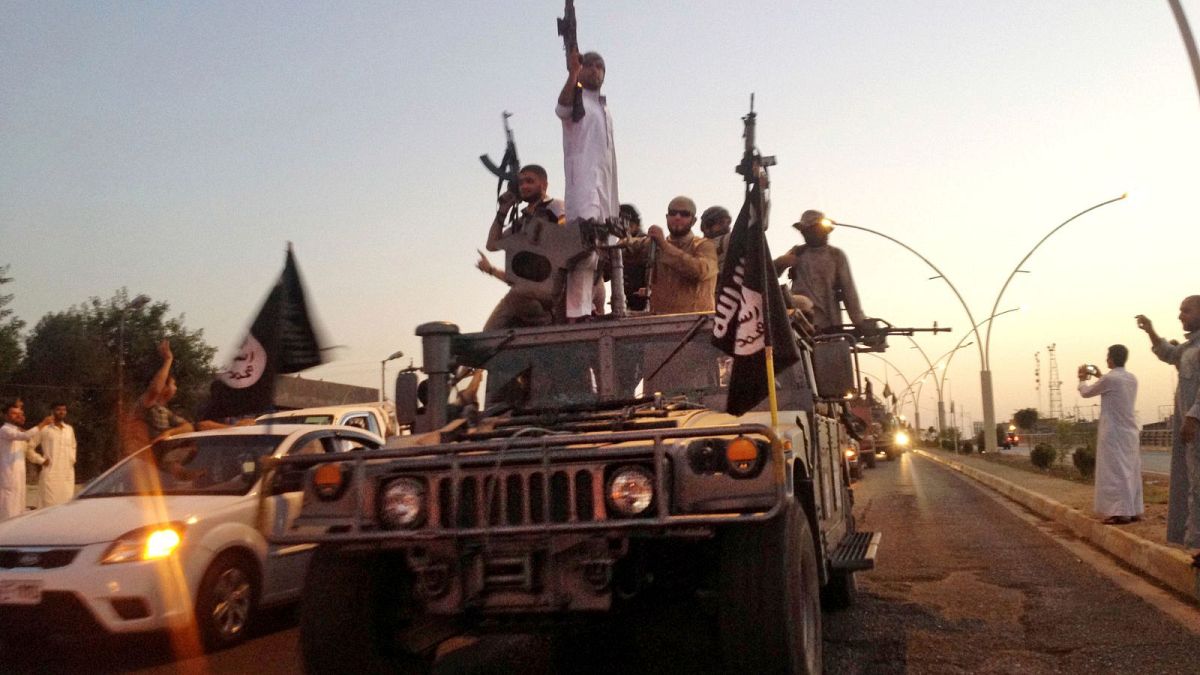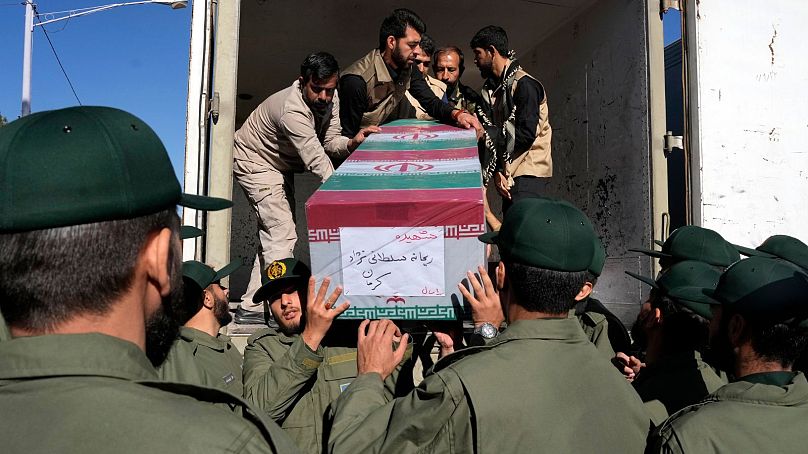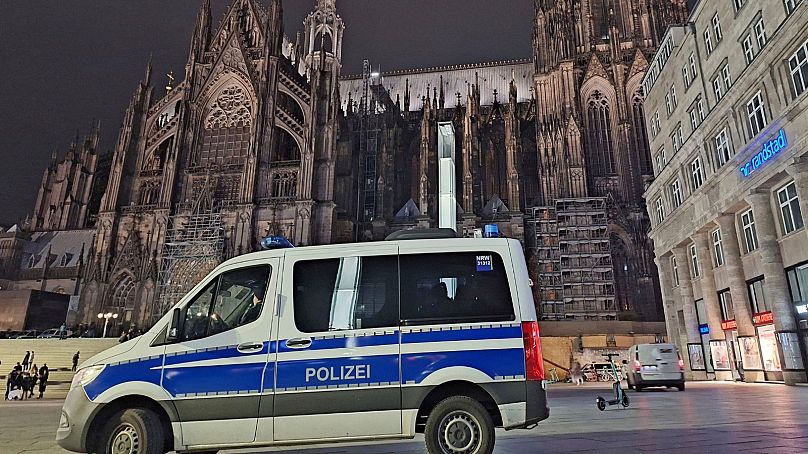Fears of potential terrorist attacks in Europe were rife during the holiday period. But are these worries well founded?
After years spent in the shadows, the Islamic State (IS) terror group is back in the spotlight.
European countries heightened security over the Christmas period, amid fears of terror attacks and violence linked to Israel's war in Gaza. Last week, IS claimed responsibility for the deadly bombings in Iran which killed 84 people.
But is the once-powerful group making a comeback?
Unexpected ‘blessing’
At its peak between 2014 and 2015, IS established its very own caliphate, controlling large parts of Iraq and Syria and unleashing deadly terror attacks across the world.
Since then its presence and might have been drastically reduced.
Yet, the group remains a threat, especially in the Middle East, Afghanistan and parts of Africa.
“IS has adapted and evolved since the height of its power in Iraq and Syria, seizing opportunities as they arise and attacking strategically to generate change,” Kate Zimmerman, a PhD candidate in the Department of War Studies told Euronews.
“The safe haven its Afghanistan branch enjoys has allowed IS Khorasan to strengthen and now export its terror into the region with aspirations to stretch into the West.”
IS Khorasan is an IS offshoot that operates in the Afghanistan-Pakistan region. It was formed in 2015 when a faction of the Pakistani Taliban, dissatisfied with their leadership, pledged allegiance to IS. The terror group is known for its brutality, carrying out attacks against civilians, government forces and religious minorities.
While IS never went away, Lorenzo Vidino, Director of the Programme on Extremism at George Washington University, told Euronews that since war broke out between Israel and Hamas a lot has changed for the terrorist organisation.
“IS never disappeared, but since 7 October it has become more relevant as a challenge,” he said, adding that the Palestinian militant group’s attack has been “a blessing” for IS.
“Historically, we’ve had bubbles of supporters for jihadism as an ideology for the past three to four decades in Europe. These bubbles grow in size and change direction when a big geopolitical event takes place,” he continued - an event like the Israel Hamas war.
Such seismic events are often linked to more people adopting jihadist ideology, as well as a change in where they travel and carry out attacks.
“What a lot of experts are thinking and fearing is that the events in Gaza could trigger a new wave of jihadism,” Vidino said, though added that nothing was certain.
“If that is to happen, there’s no question that IS would want and will seek to play a big role in that. The group has to show that it’s still relevant, that all the setbacks it suffered in the last few years don’t mean that it’s out.”
It wants to prove its relevance by carrying out attacks, he continued.
“By doing what terrorists do, that’s the nature of their business.”
Is Europe at risk?
Though IS is a shadow of its former self, bombed into submission by the US and its allies, IS is still a “relatively good” brand, according to Vidino.
“One could argue that while the central group, the main leadership, is struggling, its affiliates around the world are doing fine and carrying out attacks," he said.
"The IS name brand still attracts people.”
Concerns now are that its propaganda, especially that related to the Israel Hamas war, will be more effective at attracting recruits in Europe.
“There’s a consensus within law enforcement intelligence throughout Europe that these groups will try to mobilise people in Europe to carry out attacks,” Vidino said.
“Whether that means mobilising operatives who are operationally connected to them or simply mobilising random people online using their propaganda, waiting for an isolated lone wolf to activate himself, just radicalising people online - I think it's both,” he added.
“But it’s clear that that’s what we’re trying to do.”
Fostering social tensions and a climate of fear is the core strategy of terror groups - and what IS is trying to do.
Still, European worries about terrorism are grounded in the actual risk of a return of IS attacks.
On 31 December, German police arrested three people who were suspected of plotting an attack on Cologne’s cathedral on New Year’s Eve. The alleged attackers had planned to use a car to attack the world-famous building, according to the city’s police.
The suspects were found to have links to someone with alleged ties to IS who had been in custody since 24 December.
“Pretty much every group from IS to Al-Qaeda has been issuing threats against Europe based on the conflict in Gaza,” Vidino said.
An affiliate of IS in Afghanistan, he said, can activate networks in Europe to carry out attacks.
“There’s no question that IS has both the ability and the intention to carry out attacks in Europe,” Vidino added.


